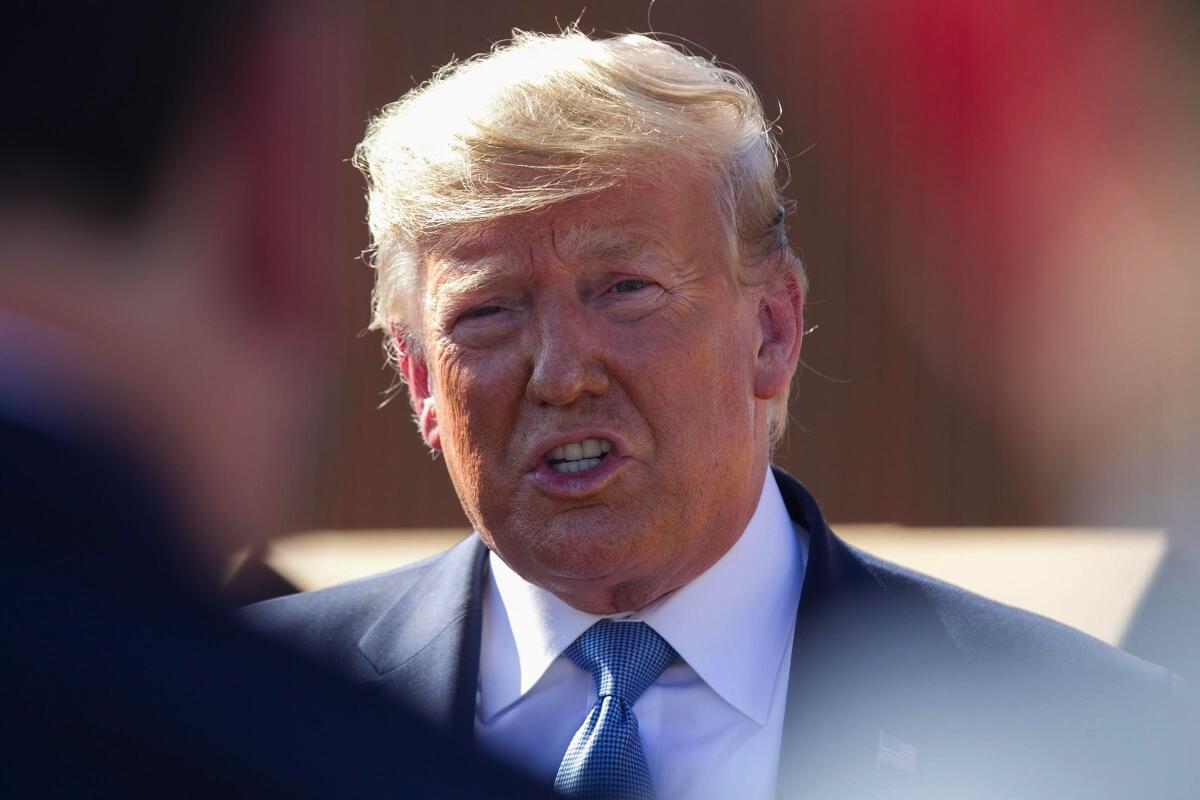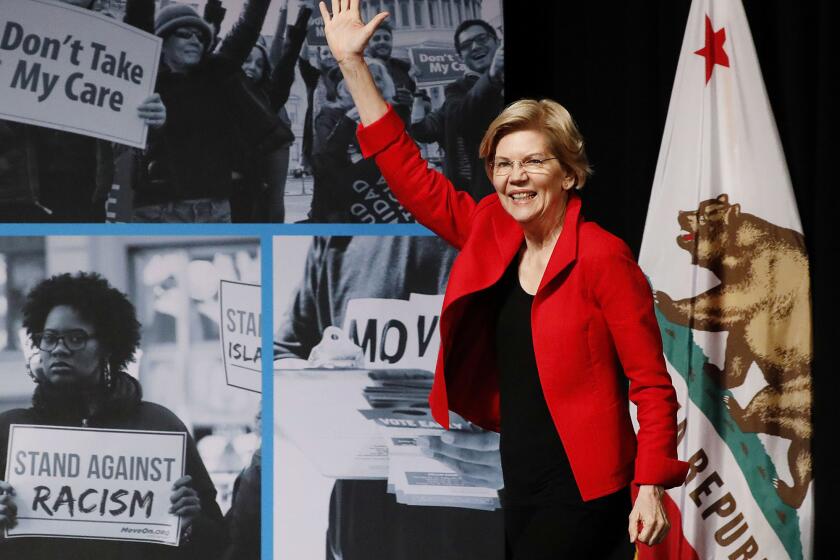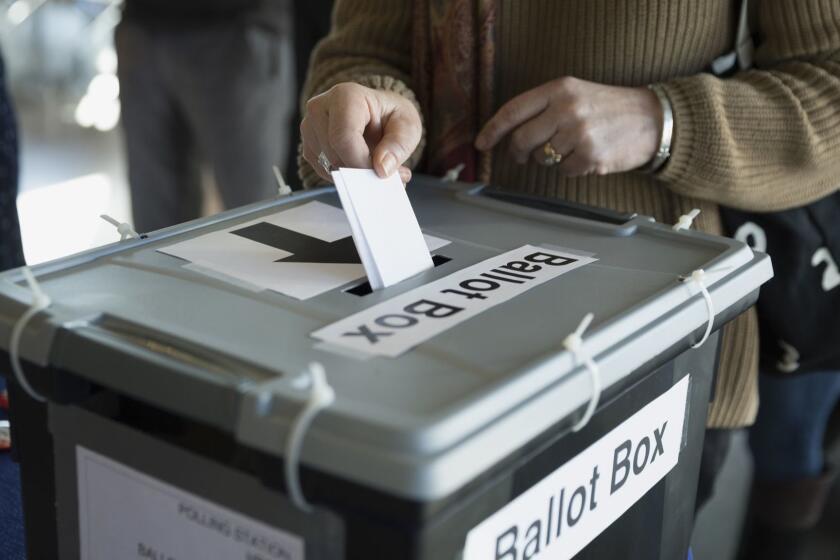Trump is on track for a level of defeat in California not seen since the Civil War

- Share via
President Trump lost overwhelmingly in California in 2016, and 2020 could be even worse, putting him on track for the poorest showing by a Republican presidential candidate in the state since the Civil War, a new poll finds.
Just 29% of likely California voters say they plan to vote for Trump, compared with 67% who say they do not, according to a new UC Berkeley Institute of Governmental Studies poll, conducted for the Los Angeles Times.
Trump lost the state to Hillary Clinton by 30 points in 2016, and the state’s voters have moved further from his party since then. The administration has fought California officials on a host of issues involving immigration, healthcare and the environment, among other things — all topics on which Trump’s positions are unpopular in the state.
In the 2018 midterm election, Republicans lost seven contested congressional seats in the state, including in onetime GOP strongholds in Orange County.
Sen. Elizabeth Warren has jumped into the lead in the Democratic nomination race in California, a new poll finds.
A huge loss for Trump in California would have implications beyond the historical record books.
Trump’s deficit in the state in 2016 was a big part of why he lost the popular vote nationwide even as he won enough states to gain a majority of the electoral college. An even larger statewide defeat in 2020 would increase the chance of another election in which a Democrat wins millions more votes than Trump even though the Democratic nominee may struggle to get a majority of electoral votes.
On the statewide level, Trump has acted as a drag on his party’s candidates for other offices, and that could worsen in 2020, said Mark DiCamillo, director of the Berkeley poll.
“Trump’s declining electoral fortunes in California could dispirit Republican voters here, reducing GOP turnout in next year’s primary and general elections. This could spell trouble for Republican candidates running in competitive elections for Congress, Assembly and state Senate,” DiCamillo said.
Just over 7 in 10 voters statewide said they think the U.S. is “off on the wrong track,” with fewer than 3 in 10 saying they think the country is “generally going in the right direction.” That’s slightly worse than in the spring of Trump’s first year in office, when California voters divided 64% to 36% on that question.
Trump retains the loyalty of a majority of Republicans in the state, the poll found, but they’re a shrinking share of California’s electorate. And even among Republicans, opinion is divided: 40% of Republican voters said they thought having a challenger to Trump in the state’s March 3 primary would be a good thing, while 60% said a challenge would be bad.
Republicans younger than 40 are most likely to favor a challenge, the poll found, with 62% saying that would be a good thing. Among Republican voters 65 and older, only 33% say a challenge would be good.
The share of voters who say they would vote to reelect Trump closely matches the share who approve of how he’s doing his job. Californians disapprove of Trump’s job performance 31% to 69%, a record high for the survey, and 58% say they “strongly” disapprove.
Almost all Democrats in the survey, 95%, say they disapprove of Trump’s performance. Among Republicans, 81% approve of the job he’s doing. As is typically the case in California, nonpartisan voters hew closely to the Democratic view, with 72% disapproving of Trump and 28% approving.
Men disapprove of Trump 64% to 36%, while his job rating among women is even lower, 74% to 26%.
The Berkeley IGS poll last surveyed the state’s voters for The Times in June. Since then, Trump has lost ground among the state’s white voters, falling from 37% saying in June they would vote to reelect him to 32% in the current poll. Among nonwhite voters in the state, fewer than 20% say they would vote for him.
A majority of voters in all regions of the state say they would vote against Trump, with his best showing coming in the Central Valley, where 41% say they would vote for him and 56% say they would not.
The UC Berkeley Institute of Governmental Studies poll that The Times is publishing uses a method that differs from traditional phone-based surveys.
The poll surveyed 4,527 registered voters statewide, including 3,945 considered likely to vote in the November general election and 656 deemed likely to cast ballots in the Republican primary. It was administered online in English and Spanish from Sept. 13 to 18. The results for the full sample have an estimated sampling error of roughly 2 percentage points in either direction, while results for the Republicans have an estimated sampling error of roughly 4 points.
More to Read
Get the L.A. Times Politics newsletter
Deeply reported insights into legislation, politics and policy from Sacramento, Washington and beyond. In your inbox three times per week.
You may occasionally receive promotional content from the Los Angeles Times.













